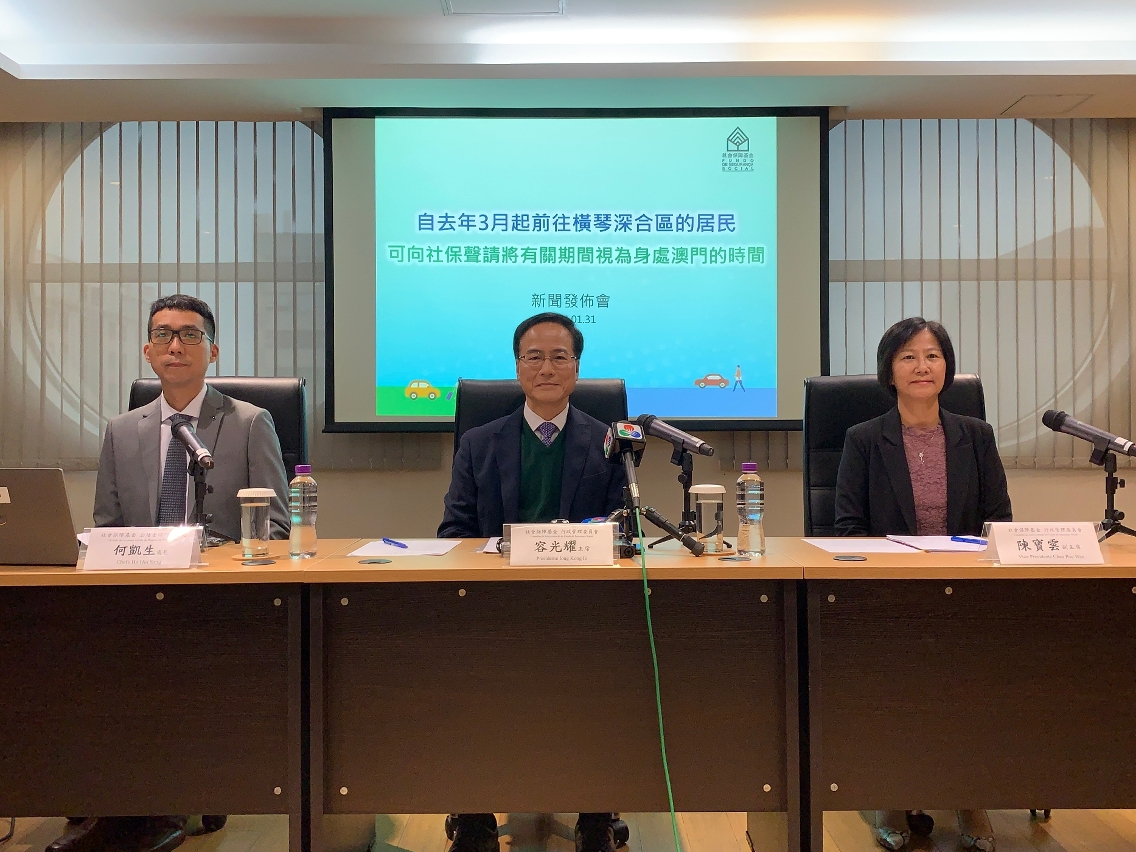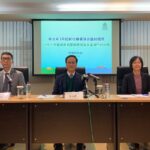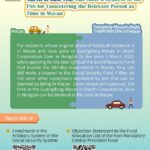 Iong Kong Io, President of the FSS Administrative Committee, Chan Pou Wan, Vice-President, and Ho Hoi Sang, Head of Division of General Affairs of Provident Fund System, attend the press conference
Iong Kong Io, President of the FSS Administrative Committee, Chan Pou Wan, Vice-President, and Ho Hoi Sang, Head of Division of General Affairs of Provident Fund System, attend the press conference
The Social Security Fund (abbreviated to FSS in Macao) stated that since 1 March 2023, residents’ original place of habitual residence is in Macao and have gone to Guangdong-Macao In-Depth Cooperation Zone in Hengqin (hereinafter referred to as the "In-Depth Cooperation Zone") to study, work, start a business, live, etc., their time in the In-Depth Cooperation Zone can be deemed as the time in Macao according to regulations. When residents need to apply for enrollment in the Arbitrary System, or claim their right to be included in the government allocation list for the Non-Mandatory Central Provident Fund, they can make a request to the FSS to recalculate their time in Macao.
The FSS held a press conference today (31 January) to announce the relevant policies. Iong Kong Io, President of the Administrative Committee, said that in order to ensure that beneficiaries have a closer connection with Macao and maintain the rational use of public funds, both the enrollment in the Arbitrary System of the Social Security System, and the government allocation of the Non-Mandatory Central Provident Fund require a person to be in Macao for at least 183 days. At the same time, the current law has stipulated exceptions that may be deemed as being in Macao, including situations such as being over 65 years old and retiring in the mainland, furthering their studies, or having to work outside Macao in order to bear the main living expenses of relatives residing in Macao, etc. If you do not meet these exceptions but have appropriate reasons, you can also make a request to the FSS based on humanitarian or other appropriately explained reasons. Therefore, Macao’s current two-tier social security system has, to a large extent, been able to facilitate the integration of Macao residents into the life in the In-Depth Cooperation Zone. With the implementation of “Regulation for Promoting Development of the Guangdong-Macao Intensive Cooperation Zone in Hengqin” from 1 March 2023, in order to protect residents whose original place of habitual residence is in Macao from having their rights and interests under the two-tier social security system being affected because of going to the In-Depth Cooperation Zone for development and living, residents who have gone to the In-Depth Cooperation Zone to study, work, start a business, and live there since 1 March 2023 can also be included in the scope of "properly explained reasons" by making a request to the FSS from now on.
Ho Hoi Sang, Head of Division of General Affairs of Provident Fund System of FSS, introduced that the relevant claimant must fill in a special declaration form of the FSS, declare the time period and residential address in the In-Depth Cooperation Zone, explain the reason for being in the In-Depth Cooperation Zone and their connection with Macao. At the same time, he or she must also submit relevant supporting documents, such as proof of employment, proof of school attendance, or proof of residence, etc. Upon review and approval, the time in the In-Depth Cooperation Zone can be deemed as the time in Macao. As for the various reasons that originally complied with the current legal provisions, residents can continue with their original procedures.
The FSS stated that the relevant policy aims to protect residents whose original place of habitual residence is in Macao from having their rights and interests under the two-tier social security system being affected because of going to the In-Depth Cooperation Zone for development and living. If you have any enquiries, please call 2853 2850 during office hours.



